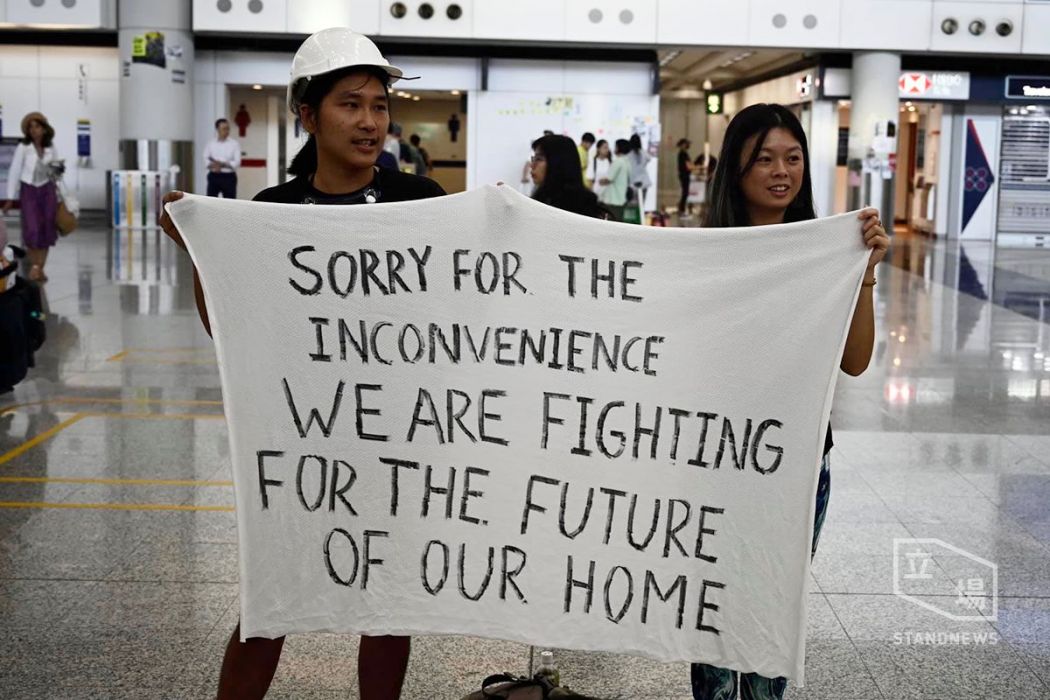The ongoing maelstrom in Hong Kong, on the surface at least, appears to put Chinese leader, Xi Jinping, into a bit of a pickle. There appears to be no letup to the protests, and yet, even a strongman like him, has no choice but to watch from a distance and grind his teeth. His options appear stark.
If he gives in to the demands of the protesters by withdrawing the controversial extradition bill, it would be viewed as a major defeat, his first. It would also only encourage the protesters, who, in the knowledge that their tactics have been effective, would try for more concessions, such as universal suffrage. Even worse, giving in would encourage subversive groups on the mainland, who would immediately note the defeat and perhaps try similar tactics there.
The other option is to send in the troops and restore order. Such a move, however, would roil financial markets, perhaps to the point where international banks would consider moving their funds and business to a more stable and friendly place in Asia, such as Singapore.

Another consideration is China’s reputation. Beijing is still taking a beating in the international media for sending troops into Tiananmen Square 30 years ago.
Then there is the current trade war with the United States to contend with. Putting boots on the ground, even in the most innocuous way – say to impose and supervise late-night curfews – would almost certainly create friction between the two superpowers and delay trade talks indefinitely.
There is also the question of whether troops could even effectively deal with the black-shirted flash mobs that have displayed impressive nimbleness in organizing protests around the city at the drop of a hat.
So Xi appears to be in an uncomfortable bind with no good options.

Not necessarily so.
The most recent riot at Hong Kong’s airport may have been in Xi’s favour. Last Tuesday night, protesters who had effectively shut down departures from the world’s eighth busiest airport for a second day in a row, attacked two mainlanders in full view of news cameras. The videos of the attack have been shown extensively on mainland media resulting in the average Chinese person’s opinion of Hong Kong, which had already reached new depths after two months of protests, to reach a nadir.
The actions of the protesters, which have been selectively released on the mainland in order to put the black shirts in a poor light, had already given democracy a bad name there. Of course, the concept of democracy in the eyes of the average Chinese citizen had already been suffering for close to three years since Trump’s victory in the American election. But the attack on the two mainlanders, one of them a reporter for a Chinese newspaper, may have served as the final straw.
For the average Chinese citizen, the violent scenes in Hong Kong they are selectively exposed to serve to affirm their collective suspicions about the “dangers” of a free and open society. As the mayhem continues, Xi’s increasingly controlled society, however distasteful, may seem like a better alternative compared to the chaos in semi-democratic Hong Kong.
In Xi’s way of thinking, this whole episode in Hong Kong may result in strengthening the support for the communist system from his 1.3 billion subjects on the mainland. Xi may believe that any weakening of support from those obstreperous seven million in Hong Kong is a small price to pay in comparison.

In the meantime, the economy here in Hong Kong has already taken quite a hit. Tourist arrivals, the majority of which come from the mainland, are down a whopping 30% in the first two weeks of August, and that number was calculated before the airport debacle. My visit this week to one of the mainlanders’ favourite shopping malls was eerily different from usual. Normally, it is packed day and night. Instead, hardly a soul was there. A drop of 30% may look good a month or two from now.
So Xi may actually be sitting pretty with a strategy of watchful waiting while Hong Kong’s economy sinks and the average Hong Kong adult starts to resent the protesters, especially if unemployment rises and the stock market continues to fall.
Of course, Xi still has much bigger fish to fry. The tumult here has not gone unnoticed in a place that constitutes the real prize: Taiwan and its unification with the mainland. However, as Taiwanese watch events here from a distance and don’t like what they see, it shows that Hong Kong can still be nettlesome for Xi.
Hong Kong Free Press relies on direct reader support. Help safeguard independent journalism and press freedom as we invest more in freelancers, overtime, safety gear & insurance during this summer’s protests. 10 ways to support us.

